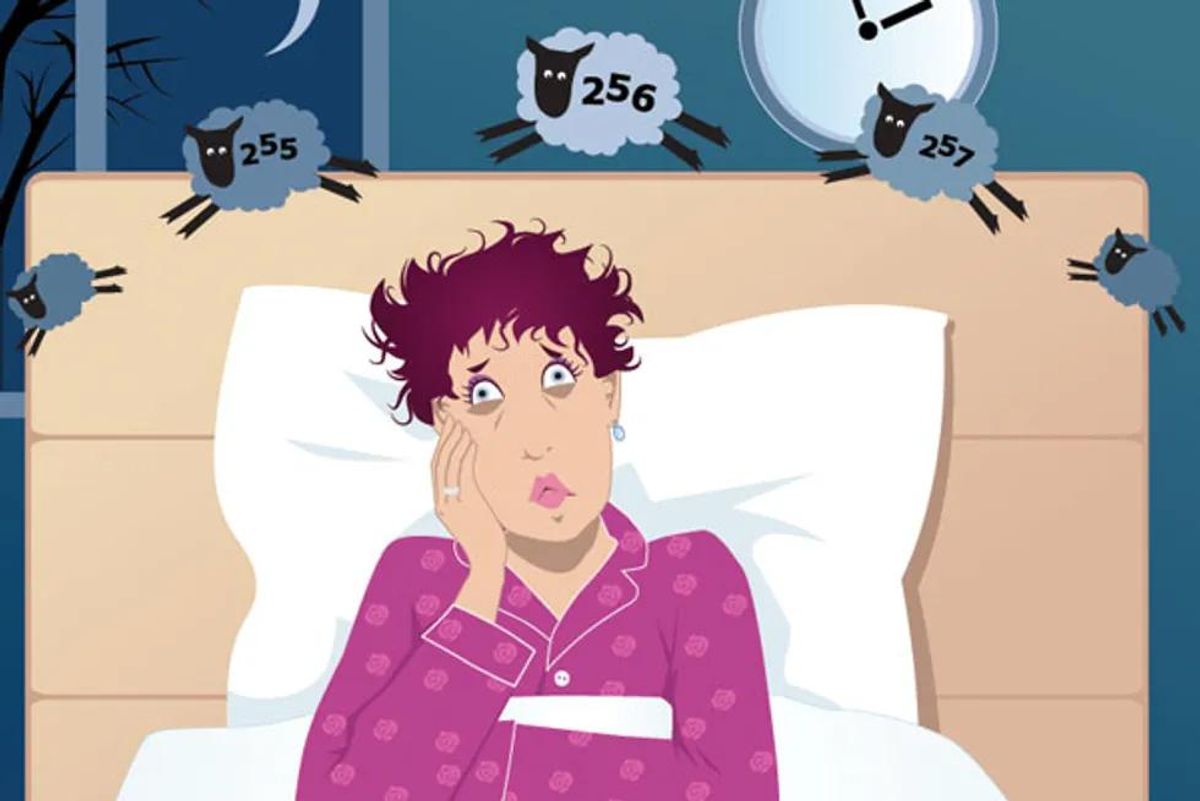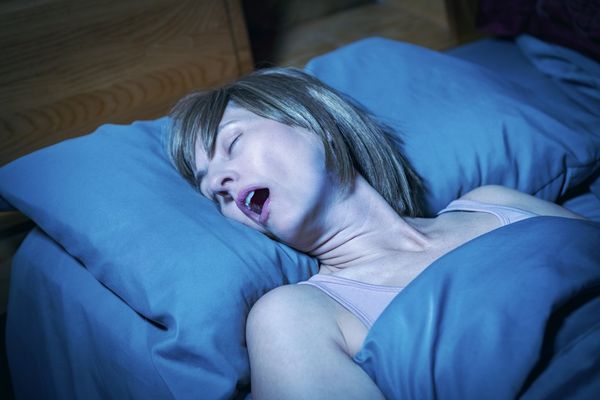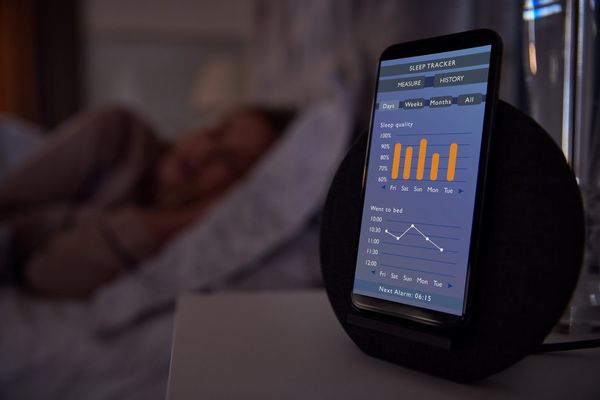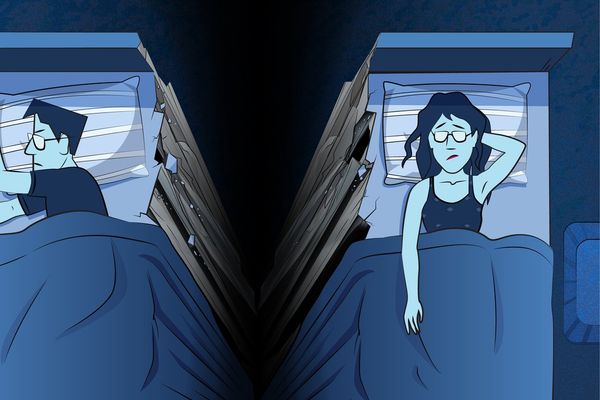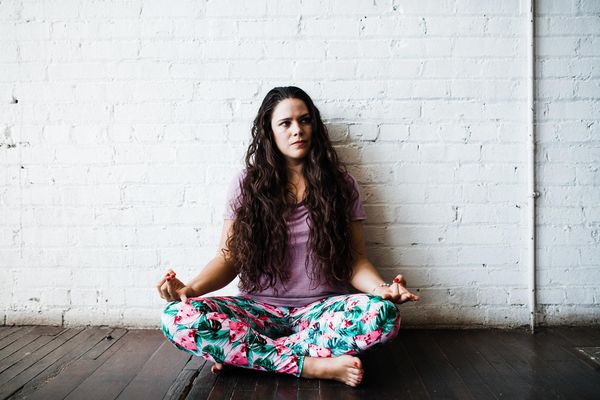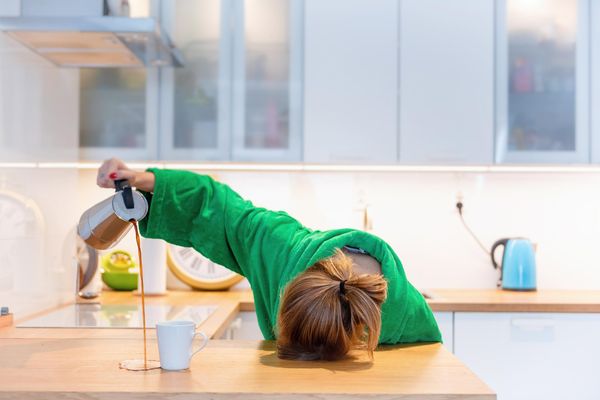Like many women, I have trouble sleeping during the holidays. I get busy and excited, and my mind won't let me sleep because there is so much going on in my head. I usually fall asleep—because I'm exhausted—but then I wake up at 2, 3 or 4 in the morning and can't fall back asleep, sometimes for two or three hours. I'm exhausted just talking about it.
I've tried all the recommended things to stay calm and less stressed during the holidays: start earlier, make lists, do less, enlist help, exercise, eat well and sleep well. That last one, as you know, I struggle with. And when that piece of the puzzle is missing, everything else seems to fall out of place, too.
And this year it's worse than ever. We started remodeling our kitchen on Labor Day weekend and hope to finish by Christmas. Needless to say, that contributes to my stress and excitement.
Add to that the fact that I'm solidly in midlife (well, maybe even pushing toward the next stage). Women of a certain age know that sleepless nights go with the territory.
Why? No one is certain, even though many women suffer. The National Sleep Foundation says postmenopausal women are often not happy with their sleep habits. As many as 61 percent report insomnia symptoms.
Some of that is attributed to the hot flashes and night sweats associated with perimenopause and menopause, but sometimes sleep becomes unpredictable for no apparent reason, say the experts at Mayo Clinic.
It may be partly hormonal: as we age, our ovaries produce less estrogen, which may make us more susceptible to environmental factors and emotional stressors that disrupt sleep, according to the National Sleep Foundation. Our aging bodies also skimp on producing progesterone, a sleep-promoting hormone. Without it, we're fated to have less restful sleep.
I've reached the point where I don't care why I can't sleep. I just want a good seven or eight hours of solid rest. And most of my women friends are right there with me.
We've tried the standard advice:
- Avoid big meals late at night. A small snack is fine, but not a huge dinner.
- Watch what you drink in the evening. Not too much alcohol, caffeine or even water—they all can keep you awake for various reasons.
- Exercise during the day. Physical activity will help you sleep, but working out too close to bedtime can keep you awake.
- Create a restful sleep environment. Keep your bedroom comfortably cool and dark. If you're easily disturbed by sounds, create white noise with a fan or white noise machine. Position alarm clocks and cell phones where you can't see the time and won't fixate on it.
- Leave the electronics out of the bedroom. No TV, smart phone, tablets or computers while you're trying to fall asleep.
- Relax. Try some gentle yoga stretches, meditation, breathing exercises or other relaxation techniques to calm your body and mind. Or just listen to soft music or read a good book.
- Stick to a regular sleep schedule. As we age, our internal clock advances so we may want to go to sleep earlier and wake up earlier. Don't fight it. And try to stick to a similar schedule every day.
- Minimize naps. It may seem like a good idea at the time, but if you sleep too much in the day, it can keep you up at night.
I've tried these … and I'm still lying awake. Experts say I should avoid trying too hard to sleep—easier said than done when hours pass and you're still tossing and turning. Sometimes I go to another room to read until I'm drowsy. But when my head hits my own pillow, the random thoughts return to keep me awake.
My friends and I joke about what we did or could have done in the middle of the night. Recently, I was visiting a friend I hadn't seen in a while. When we realized we'd both been awake for half the night, we wished we'd put on our robes and gotten together for a gab session. Another friend watches old movies when she can't sleep. I wish she had a way to quietly signal me to come over and join her. Or maybe I could enlist her help on the remodeling project. I recently put a pre-dawn coat of paint on the kitchen walls.
Or maybe we can start a "We Can't Sleep Club"—possibly an online club where we'd discuss books or movies or music or our snoring partners … at 3 in the morning. Surely it beats tossing and turning all night.

